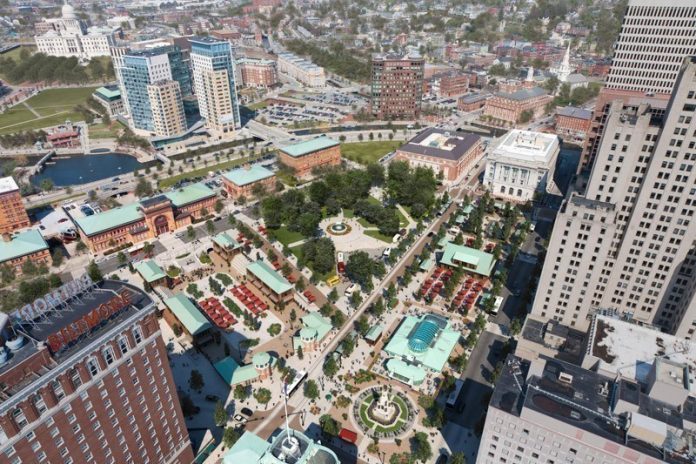
PROVIDENCE – Over the past 50 years, Providence has endured demographic shocks, including years of population loss, declining housing values and elevated crime rates.
Yet there is a significant bright side: The capital city has experienced an economic recovery marked by growth in the “Eds and Meds” sectors of higher education and health care, according to a recent analysis by Moody’s Investors Service.
Since 2000, Providence’s tax base has grown by nearly 100 percent, supported by the “knock-on effect” from large institutions such as Brown University, Johnson & Wales University, Rhode Island School of Design, Providence College, and several large hospitals, said Moody’s, one of the big three credit rating agencies.
The city’s current credit quality rating by Moody’s is Baa1/Stable. On the Moody’s scale, Baa1 is “lower medium investment grade.” While Providence has sizable debt and pension liabilities and restrictive revenue structures, Moody’s opined, the city is better positioned than some similar former industrial powerhouses such as Trenton, N.J., to improve its credit quality.
Such ratings are important for municipalities because it affects their ability to raise funds for projects through bond sales.
“Both cities [Providence and Trenton] are heavily dependent on state aid and share revenue-raising limitations, notably property-tax caps and a large amount of tax-exempt property,” the firm wrote. “Nevertheless, partly due to differences in the tax cap, Trenton has grown its reserves despite economic distress, while Providence has historically failed to convert its economic success into healthier finances, though there are positive signs.”
Moody’s added: “Of the two, Providence is better positioned to improve its credit quality over the next decade. Providence has built a strong economy beyond the government sector, while Trenton has yet to establish a post-industrial identity. Assuming Providence can use its dynamic economy to continue solidifying its finances, the city has stronger growth prospects than Trenton, which needs to build its economy but has no obvious starting point.”
Scott Blake is a PBN staff writer. Email him at Blake@PBN.com.












